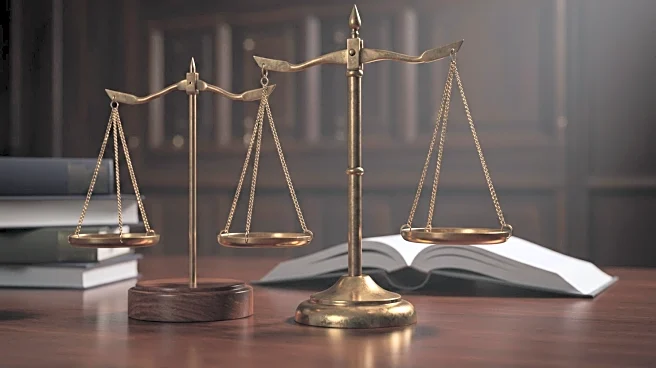What is the story about?
What's Happening?
A federal judge has issued an injunction to stop the Federal Trade Commission (F.T.C.) from continuing its investigation into Media Matters, a liberal watchdog group. The investigation was initiated by the F.T.C. in May, focusing on whether Media Matters had unlawfully collaborated with advertising advocacy groups to reduce revenue for Elon Musk's social media platform, X. This inquiry followed Media Matters' 2023 report that highlighted the appearance of ads on X alongside antisemitic content. Media Matters responded by suing the F.T.C., alleging that the investigation was a retaliatory measure orchestrated on behalf of Musk and the Trump administration. Judge Sparkle L. Sooknanan of the U.S. District Court for the District of Columbia ruled in favor of Media Matters, describing the F.T.C.'s actions as a 'retaliatory act' and a violation of First Amendment rights. The judge's decision effectively halts the investigation, although the F.T.C. retains the option to appeal.
Why It's Important?
This ruling underscores the ongoing tension between government regulatory bodies and media organizations, particularly concerning issues of free speech and retaliatory actions. The decision is significant as it highlights the judiciary's role in protecting constitutional rights against perceived governmental overreach. For Media Matters, the ruling is a victory in safeguarding its ability to conduct research and publish findings without fear of government retaliation. For the F.T.C., the decision represents a setback in its efforts to regulate and investigate potential collusion in the advertising sector. The case also reflects broader societal debates about the balance between free speech and the responsibilities of media platforms in moderating content, especially in the context of antisemitism and other forms of hate speech.
What's Next?
The F.T.C. may choose to appeal the decision, which could lead to further legal proceedings and potentially set a precedent for how similar cases are handled in the future. The outcome of any appeal could influence the regulatory landscape for media organizations and their interactions with government bodies. Additionally, this case may prompt discussions among policymakers and legal experts about the limits of government investigations into media entities and the protection of free speech rights. Stakeholders in the advertising and social media industries will likely monitor the situation closely, as the implications could affect their operations and regulatory compliance strategies.















